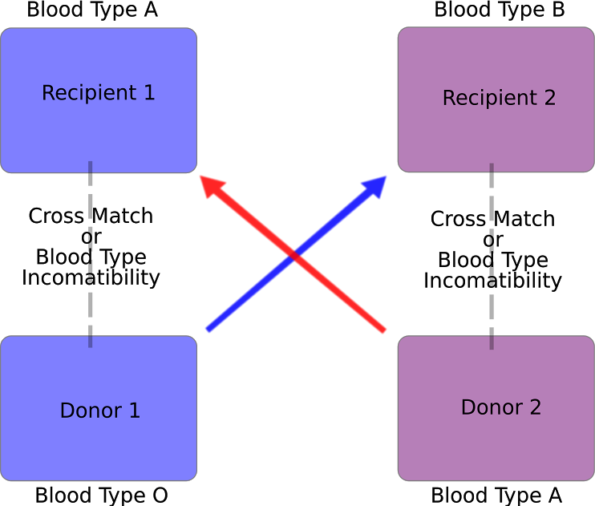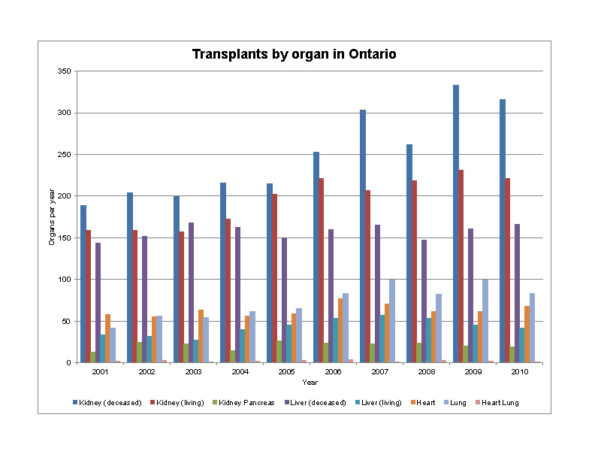Donation After Death
Beep…..Beep….Beeeeeeeeep. “Time of death 17:38.” Your patient now rests lifeless in the bed with warm, viable organs aching to carry out their functions. The Pathologist arrives to take the body from the room down for examination. Meanwhile, in the room next door, an 8 year old boy is fighting for his life, in need of a heart to survive. The patient that has just passed could help this little boy with a brand new, fully functioning heart. But, unfortunately he is not an organ donor so nothing can be done.
It is very crucial for you to ask yourself the simple question, “Do I want to make an impact in someone’s life after I pass?” Some people choose to make an impact after their death and many do not. It is essential that you ask yourself this question because for many you could be their last hope at a healthy life. When an organ donor is near death, the OPO (Organ Procurement Organization) is notified of the passing or near passing of the patient. At this time, the OPO starts the official process of the organ donation.
Katie’s Star Shines Bright
In Katie’s case she was only 22 when she was struck by a car and flown to Strong Memorial Hospital in Rochester, NY. Katie was put on this list and her usable organs were all donated. Her kidney went to a 13-year-old girl. Her liver, pancreas, and kidney all went to people in New York. Although Katie had lost her life, she helped many people continuing in their life being happy and healthy. The family got to meet one of the recipients on the 5th anniversary of Katie’s death. The recipient had said “Their daughter gave me so much. I am so appreciative that I have a new lease on life, and they seemed happy to see Katie live on in some way.” Indeed, Katie’s star still shines brightly today.
Grace’s Story
On the other hand, in Grace’s experience with the donation of an organ, she was on the receiving end of the process. Shortly after birth Grace was diagnosed with dilated cardiomyopathy. The doctors told her parents that there was nothing they could do. She couldn’t wait for a heart. Miraculously at the age of 4 Grace received her heart from another child. They had waited 445 days before Grace was lucky enough to get the heart. Only 12 days after the transplant, she was released from the hospital and was ready to live a normal life for once. Today she is a growing girl, with a family that loves her, and fun awaits, made possible by one special family who said yes.
Transplantation

Sometimes, after the death of a family member, people feel inspired to donate organs in memory of their loved ones. Debbie of Florida, felt she wanted to honor his life by donating her kidney. She was going to give her kidney to a complete stranger, because she wanted to honor her son who died at the age of 22. When Debbie’s son passed, he was not able to donate his organs as they were not viable. So Debbie felt it her responsibility to carry out his wishes by donating her own kidney. Debbie was part of a chain of 12 people who underwent a kidney transplant chain where 6 people gave and 6 received a kidney. Debbie helped save 6 lives “and though she no longer has her son, Debbie knows that his generous spirit lives on through the chain he has inspired.”
Living Donation

Many people do not ever think of donating their organs while they are still alive, but it is a very great thing to do if you are able and willing to do it. Most people who do these living donations usually know the person they are donating to whether it is a friend or family member. But sometimes they do not know who they donate whether anonymous or they meet them prior to the surgery or after it. By looking at the graph below the number of donations in the 9 year span shown on the graph. The numbers have gone up tremendously because more people have been deciding to donate. The idea of donating is advertised more often today as it was even in 2010. The graph that would be of the past years leading up to 2016 would be even more of an increase of the donations made, living and deceased.
Many people also just do it for the money but, after the organ broker—the guy who sets up your kidney-for-cash transaction—takes his cut, he pays travel, the surgeon, and medical supplies. Most people get $1,000 to $10,000 for their kidney much less than what they would have hoped for. You see stuff like this on social media all the time. Many people look into the process for the money aspect of it but they do not consider all the things that could go wrong. In numerous accounts people’s insurances won’t ensure the cost of the surgery if they get it, which would have to be another thing to take into consideration during the living donation process.
Picture from Wikipedia
Why You Should be an Organ Donor
People on the receiving side benefit from something that you do not need after you have passed. People do not think about this and by the time they have passed they never made a decision. By saying that you want to donate after your death you can save many lives and in some situations you even encourage people to do courageous acts that many would never even think of. Although you have just lost your life when the organs are being donated you are helping someone else who could possibly die without your organ. People will probably feel pretty good for doing such a heroic act like this by doing basically nothing but saving a persons life. You will not be needing your organs after your passing.
Post by LindseyC. Featured image by Flickr
